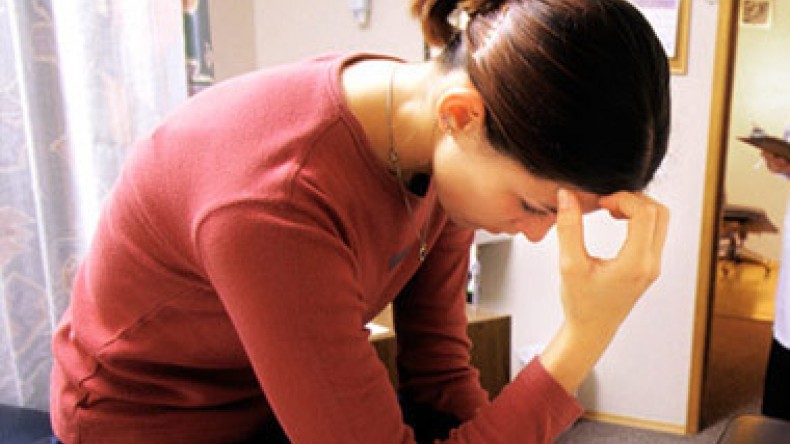
Women suffer up to 40 per cent more mental health problems than men
Women experience more mental health problems than men due to the stress of juggling many roles, according to a new book.
According to Daily Mail, Professor Daniel Freeman, of the University of Oxford, said the first systematic investigation of national mental health surveys showed psychological disorders are 20 to 40 per cent more common in women than men in any given year.
Stress related to pressure on women to fill many different roles is likely to be a major factor for higher rates of everything from depression to phobias, according to Professor Freeman, a clinical psychologist.
'The biggest discrepancies occur in conditions for which we know the environment, rather than genes, makes the greatest causal contribution,' he said.
'It's certainly plausible that women experience higher levels of stress because of the demands of their social role.
'Increasingly, women are expected to function as carer, homemaker, and breadwinner - all while being perfectly shaped and impeccably dressed.
'Given that domestic work is undervalued, and considering that women tend to be paid less, find it harder to advance in a career, have to juggle multiple roles, and are bombarded with images of apparent female 'perfection', it would be surprising if there weren't some emotional and psychological cost.
'These are the kind of pressures that can leave women feeling as if they've somehow failed; as if they don't have what it takes to be successful; as if they've been left behind. And those kinds of feelings can lead to psychological problems like anxiety and depression.'
'The Stressed Sex: Uncovering the Truth about Men, Women, and Mental Health', published on May 23 discloses that women have higher rates of depression, panic disorder, phobias, insomnia, post-traumatic stress disorder and eating disorders.
Men have higher rates of alcohol, drug and anger problems, according to Professor Freeman and co-author Jason Freeman, a writer and editor.
Professor Freeman is a professor of clinical psychology, a Medical Research Council (MRC) Senior Clinical Fellow, in the University of Oxford's Department of Psychiatry and an honorary consultant clinical psychologist at Oxford Health NHS Foundation Trust.
He said traditionally it has been said that overall rates of mental health problems in men and women are the same 'but the evidence shows that this is simply not the case'.
'Overall, in the current environment women are bearing the brunt of mental health problems,' he said.
'But let's be clear, even for problems that are more common in women - such as anxiety and depression - they also afflict very significant numbers of men.
'So it would be wrong to categorise mental health troubles as essentially a female problem. Rates of mental health problems are too high in both genders.'
In fact, Professor Freeman argues that the taboo around gender differences in mental health must be broken in order to tackle disorders more successfully in future.
'Given the extent of the burden on society and individuals alike, understanding what causes mental health problems, and thus being better placed to prevent and treat it, is vitally important,' he added.
'But our ability to do that is going to be hampered if we assume that gender isn't significant. In fact, it may often be a crucial contributory factor.
'Men and women are very much from the same planet but they may be breathing air of different qualities. If we ignore the potentially higher rates of psychological problems in women, we deprive ourselves of the opportunity to change the situation for the better.'
Newsfeed
Videos






























